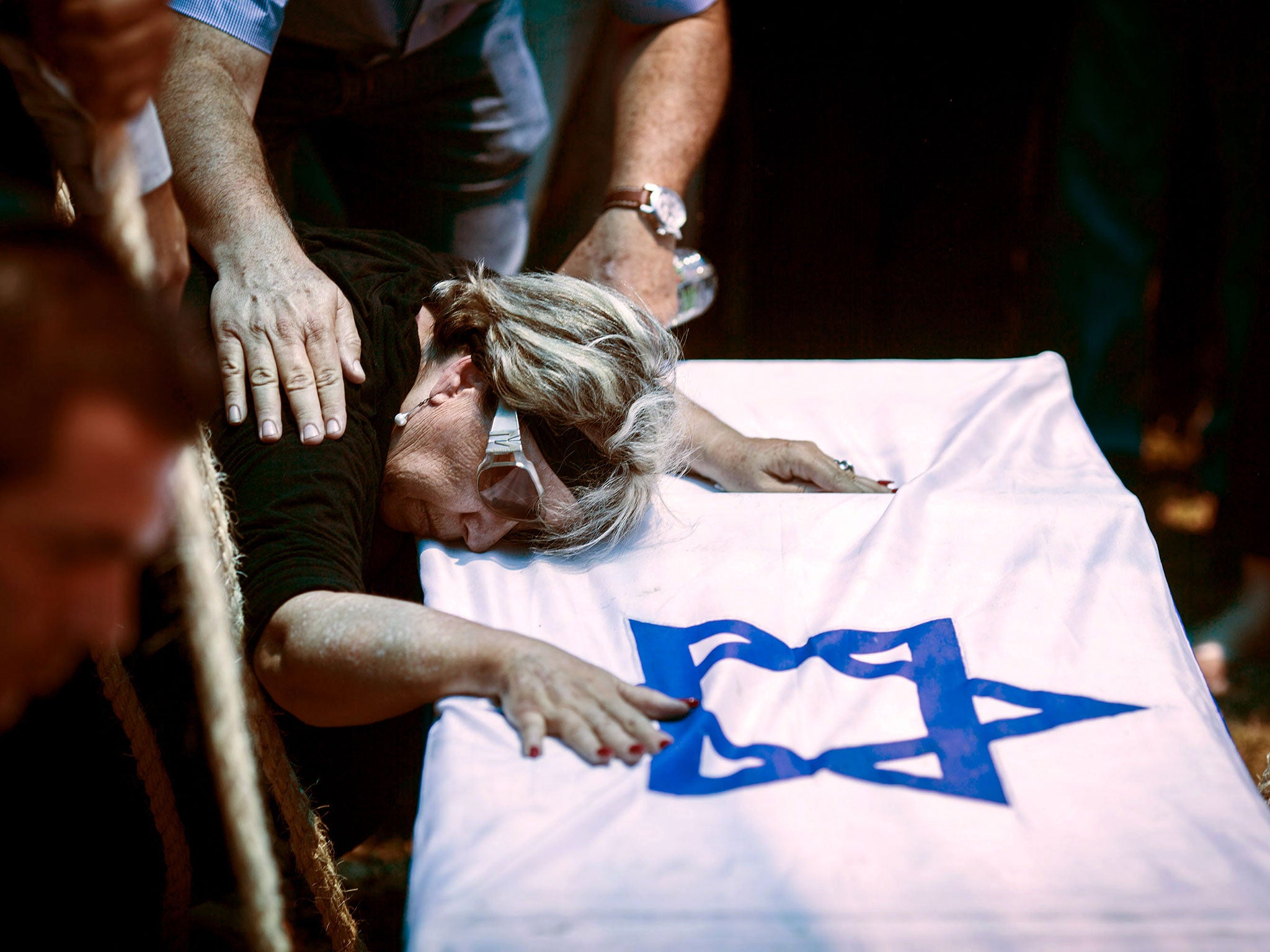Israel-Gaza conflict analysis: Prime Minister Netanyahu weighs cost of reaching his goals
The Prime Minister is now at a moment of truth, where he has to decide how many soldiers lives he is willing to sacrifice

With Hamas still keeping up its rocket barrages, putting up stiff resistance in Gaza and continuing to attempt major attacks via cross-border tunnels, Israel is far from being able to claim victory for its two-week-old Operation Protective Edge, launched with the stated aim of removing the missile threat.
This makes it difficult for Prime Minister Benjamin Netanyahu to move towards an end to the fighting. It also explains why Israel is pouring more troops into Gaza and why it is poised to ratchet up the military pressure – despite stepped-up ceasefire diplomacy by US Secretary of State John Kerry and UN Secretary General Ban Ki-Moon.
This diplomacy could be an opportunity for Mr Netanyahu, providing a way out of the war without being drawn into the all-out reoccupation of the Strip that would spell heightened disaster for Gazans and death for a relatively large number of Israeli soldiers.
The premier has repeatedly signalled he would rather avoid reoccupation. Israel’s launching of a more limited but still devastating ground operation last Thursday has for now shielded him from far-right criticism that he is hesitant in pursuing the military campaign.
In pictures: Pro-Palestinian protests across Europe
Show all 12In the view of analysts, Mr Netanyahu is now at a moment of truth where he has to decide how many soldiers lives he is willing to sacrifice. Until now the Israeli military fatalities have been painful but not intolerable to the public.
“The whole operation is at a point where Israel has to decide whether to go on and gain a more decisive victory even though this costs more Israeli lives or end it with having destroyed tunnels and rocket launchers but without a knockout blow,” says Leslie Susser, diplomatic editor at the Jerusalem Report.
Mr Netanyahu at the moment is playing a double game: pointing towards escalation but also keeping some flexibility about reaching a diplomatic agreement. Today he tried to keep up the image of the determined yet measured leader. “The Israel Defence Forces are advancing on the ground in accordance with plans and the operation will be expanded until the goal is achieved: restoring quiet to the citizens of Israel for an extended period of time.” That formulation, while pointing to deepening involvement in Gaza, deliberately did not include the goals of destroying Hamas’s military wing or achieving permanent calm.
Within Mr Netanyahu’s Likud party, the strategic affairs minister Yuval Steinitz said it was possible the campaign would be expanded to recapturing “all of Gaza.” The communications minister, Gilad Erdan, said Israel should not agree to a ceasefire until it has completed the mission of destroying tunnels, the stated rationale for the ground invasion.
The lion’s share of this will be achieved in 2 to 3 days, according to defence minister Moshe Yaalon. It is then that Mr Netanyahu will have to decide whether to redefine the purpose of the troop presence in Gaza or move towards a diplomatic exit.
The main problems for Mr Netanyahu with an all-out reoccupation are the high price in Israeli fatalities, the international pressure resulting from even higher Palestinian fatalities and the realisation that taking out Hamas, if this is possible, would likely create a chaotic and even costlier new reality in Gaza.
At the moment, Mr Netanyahu is deciding on the trade off between minimising casualties and achieving a clear victory. As Yossi Verter wrote in today’s Haaretz: “It is hard to see a bottom line that achieves the two goals: a satisfactory battlefield verdict and a tolerable number of killed.”
It seems that from his own point of view, Netanyahu has calculated that he politically cannot afford to stop the operation right now. “People will ask what was accomplished and say Hamas is still on its feet,” says Uri Dromi, former spokesman for Yitzhak Rabin, the assassinated premier.
But Mr Dromi believes that after Hamas is subjected to further blows Mr Netanyahu would be able to sell a ceasefire that contains a mechanism between Egypt and the moderate Palestinian president Mahmoud Abbas to diminish Hamas’s influence.
But until Netanyahu’s calculations ripen and while Hamas holds out, ordinary Gazans will continue to pay the heaviest price.
Subscribe to Independent Premium to bookmark this article
Want to bookmark your favourite articles and stories to read or reference later? Start your Independent Premium subscription today.

Join our commenting forum
Join thought-provoking conversations, follow other Independent readers and see their replies